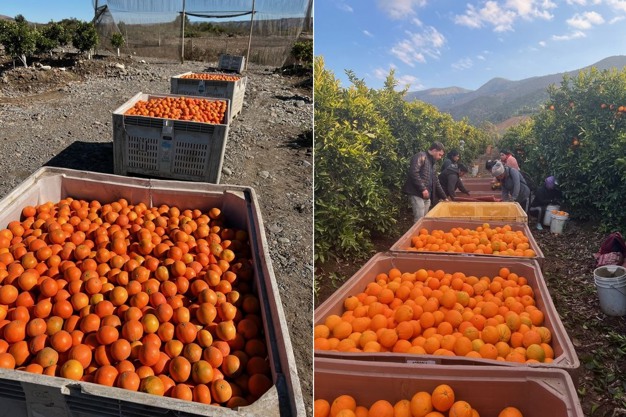The southern hemisphere citrus program is winding down quickly, and imports will be concluding with limited volume this week. "This is normal for the time of year and in the next two to three weeks, southern hemisphere product will be finishing up," says Bill Weyland with Lange Farms (formerly Tom Lange/Seven Seas).
Southern hemisphere season summary
For some citrus commodities, the southern hemisphere season was disappointing while for others, it turned out very positive. "Although the lemon season started off optimistic back in April and May, it turned out very challenging." Weather complications in Argentina resulted in problems with quality. This, coupled with huge volumes available from both Argentina and Chile created a very difficult situation from August until the end of October. "Supply outpaced demand for the last three months of the season, putting downward pressure on prices. It resulted in a complicated and disappointing last few months to the season."
The southern hemisphere mandarin market on the other hand moved quite well. There was a slight reduction in volume from Uruguay and South Africa due to weather issues, but overall quality and demand have been good. "Supply and demand were well balanced and mandarin growers and shippers have been able to benefit from very good pricing in the September and October period," shares Weyland. "All in all, it was a relatively good season from start to finish."
Orange volumes from Uruguay and South Africa to the U.S. were also reduced for the same weather reason. Overall, the orange campaign progressed as expected but a delayed vessel from South Africa made for a challenging last few weeks. "One of the container ships from South Africa was delayed by 10 days, which initially created a shortage of product and then a situation of oversupply in the market." A critical sales window was lost, and orders couldn't be fulfilled during the last week of October. By the time the vessel arrived, California's harvest had just ramped up and retailers had already started to make the switch to domestic citrus, which caused prices to decline. "On a positive note, this >300 container vessel represented a very small percentage of total orange volume coming to the U.S. and growers will still have a positive feeling about the season."

Morocco
Lange Farms is now slowly transitioning to northern hemisphere citrus, kicking off the season with mandarins from Morocco. The country has been harvesting for several weeks and the first vessel with fruit arrived on the U.S. East Coast last week. "From now on, a vessel will arrive about once every two weeks, either at the Gloucester Terminal in New Jersey or at the Port of Wilmington in Delaware," says Weyland.
The majority of fruit from the first vessel went to Canada, with Quebec being a key base for Moroccan mandarins. However, by January the fruit is expected to be distributed more evenly with about 60 percent of the fruit going to the U.S. and 40 percent into Canada. In addition to mandarins, Lange Farms also has a good following for Moroc Late oranges. "It's a very good eating orange. It's sweet and juicy and will be available in the U.S. from March through June."
The outlook for the Moroccan season is positive. Last year was the worst year in terms of volume due to a lack of water and while the country is still suffering drought conditions, most commodities are expected to see an increase in volume of 20 to 30 percent. "While this sounds promising, the caveat is that this increase is coming off historically low numbers."
Impact of flooding in Spain
While the early plans were for Morocco to send more volume to the U.S. this season, this may change as a result of flooding in the Valencia region in Spain. Valencia accounts for nearly two-thirds of citrus fruit production in Spain and the country is the world's top exporter of oranges. In the coming weeks, more information will become available on the impact of the flooding on Spain's citrus production, and it may very well change Morocco's strategy.
"Morocco has always had a small place in the European citrus market, but this may potentially offer the country a new opportunity it wasn't anticipating," shares Weyland. "It is a lot less risky to ship to Europe as transit times are shorter and product can be shipped via trucks instead of vessels."

For more information:
Bill Weyland
Lange Farms
Tel: (+1) 732-634-1109
[email protected]
www.lange-companies.com
